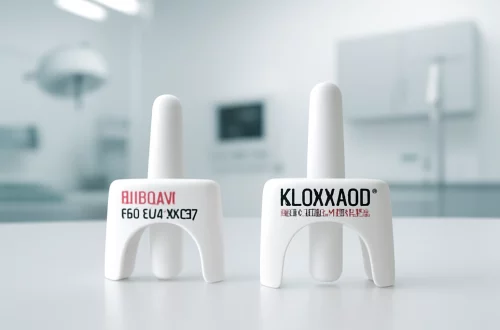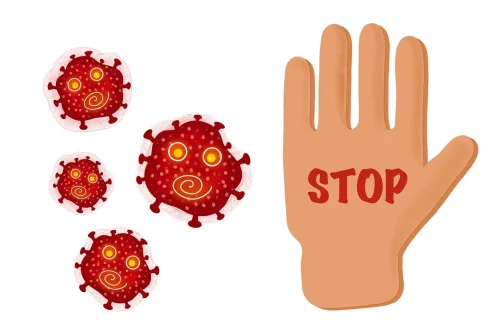-
Do Antibiotics Cause Weight Gain? Exploring the Connection and Risks
Antibiotics are essential medications that play a crucial role in combating bacterial infections, but their widespread use has raised questions about potential side effects beyond their immediate therapeutic benefits. One area of growing concern is the relationship between antibiotic use and weight gain. While antibiotics effectively eradicate harmful bacteria, they can also disrupt the delicate balance of the microbiome, which is integral to various bodily functions, including metabolism and weight regulation. The human microbiome consists of trillions of microorganisms residing in the gut, and these bacteria are essential for digesting food, absorbing nutrients, and even regulating appetite. When antibiotics are introduced into the system, they may indiscriminately kill both harmful…
-
Why One Calf is Fatter Than the Other: Understanding Growth Differences
Understanding growth differences in calves can be a fascinating yet complex topic. The variation in size and fat accumulation among calves can be attributed to a multitude of factors, ranging from genetics to environmental influences. In the realm of livestock and animal husbandry, farmers and ranchers often observe that not all calves grow at the same rate or achieve similar body condition scores, leading to questions about the underlying reasons. In many cases, these differences can be traced back to the animal’s genetics, which play a crucial role in determining growth potential. However, the environment in which the calves are raised also significantly impacts their development. Nutritional factors, social dynamics…
-
Will Hyaluronic Acid Cause Weight Gain? Debunking the Myths
Hyaluronic acid has gained significant attention in recent years, particularly in the realms of skincare, beauty, and health. This naturally occurring substance plays a vital role in maintaining skin hydration, elasticity, and overall youthfulness. With its impressive ability to retain moisture—holding up to a thousand times its weight in water—hyaluronic acid has become a staple ingredient in many cosmetic products, including serums, creams, and injectable treatments. However, as its popularity has surged, so have misconceptions surrounding its effects, particularly regarding weight gain. Many people have expressed concerns that incorporating hyaluronic acid into their routines, whether through topical applications or injections, may lead to unwanted weight gain. This worry is not…
-
Does Hyaluronic Acid Lead to Weight Gain? Exploring the Myths
Hyaluronic acid has gained significant popularity in the beauty and wellness industries, often hailed for its hydrating properties and ability to improve skin elasticity. As more people incorporate this substance into their skincare routines or even consider it for joint health, questions have arisen about its effects, particularly concerning weight management. The notion that hyaluronic acid could contribute to weight gain has circulated widely, leading to confusion and concern among users. Understanding the role of hyaluronic acid in the body, how it functions, and its actual effects on weight is crucial for anyone looking to enhance their health and beauty regimen. This article aims to delve into the myths surrounding…
-
Boost Your Energy with Very High Calorie Foods and Recipes
Boosting energy levels is a common desire for many individuals navigating the hustle and bustle of modern life. Whether you’re a busy professional, a student, or an athlete, maintaining high energy levels is crucial for productivity and overall well-being. While many people turn to caffeine or energy drinks for a quick boost, a more sustainable and healthier way to enhance your energy is through nutrition. The food you consume plays a significant role in how energized you feel throughout the day. Very high-calorie foods, often rich in essential nutrients, can provide the lasting energy needed for daily activities. These foods not only support physical performance but also contribute to mental…
-
Does Vitamin B12 Cause Weight Gain? Understanding the Myths and Facts
Vitamin B12 is a crucial nutrient, playing an essential role in various bodily functions, including DNA synthesis, red blood cell formation, and neurological health. As a water-soluble vitamin, it is primarily found in animal products such as meat, fish, eggs, and dairy. With the rising popularity of dietary supplements and the increasing number of people adopting vegetarian and vegan diets, interest in Vitamin B12 has surged. However, many misconceptions about this vitamin circulate, particularly regarding its potential impact on weight management. The relationship between Vitamin B12 and weight gain is often misunderstood. Some individuals believe that taking B12 supplements can lead to unwanted weight gain, while others argue that it…
-
Understanding Caloric Surplus: Causes and Consequences for Health
Understanding the concept of caloric surplus is essential for anyone interested in nutrition, fitness, and overall health. A caloric surplus occurs when the number of calories consumed exceeds the number of calories burned by the body. This imbalance can have significant implications, particularly in the context of weight gain and metabolic health. In a world where diets and weight management are at the forefront of many discussions around health, understanding the dynamics of caloric surplus can provide valuable insights. Many people associate caloric surplus solely with weight gain, often overlooking the nuanced effects it can have on the body, both physically and mentally. The relationship between caloric intake and expenditure…
-
Understanding Caloric Excess and Its Impact on Health
Understanding Caloric Excess and Its Impact on Health In today’s fast-paced world, where convenience often trumps nutrition, many individuals find themselves grappling with the concept of caloric intake. The importance of understanding calories extends beyond mere numbers on a nutrition label; it plays a crucial role in our overall health and well-being. Each calorie consumed contributes to our body’s energy balance, which is essential for maintaining metabolic processes and supporting physical activities. However, when caloric intake consistently exceeds the body’s needs, it can lead to a range of health complications. Caloric excess is not merely about overeating; it encompasses the quality of food consumed, lifestyle choices, and individual metabolic rates.…
-
Do You Gain Weight While Ovulating? Understanding Hormonal Changes
Understanding the complexities of the female reproductive system can often feel overwhelming. One of the most talked-about phases in this cycle is ovulation, a time when many women experience various physical and emotional changes. Hormonal fluctuations during this period can have notable effects on the body, including potential weight fluctuations. It is essential to understand how these hormonal changes impact the body, as they can lead to confusion and misconceptions about weight gain and loss. During ovulation, which typically occurs about midway through a woman’s menstrual cycle, the body undergoes a series of hormonal adjustments. These changes can affect everything from mood and energy levels to appetite and water retention.…
-
Do Gummies Cause Weight Gain? The Sweet Truth Revealed
The rise of gummy vitamins and supplements has transformed the health and wellness industry, making it easier for people to incorporate essential nutrients into their daily routines. These chewy, flavorful alternatives to traditional pills have gained immense popularity among various age groups due to their palatable taste and convenience. However, with the increasing consumption of gummies, questions have emerged about their potential impact on weight management. Many individuals enjoy the sweet taste of gummies, often leading to the question: do these delightful treats contribute to weight gain? As more people seek to maintain a healthy lifestyle while indulging in their favorite flavors, understanding the nutritional content and caloric value of…




































